DATE'25
Date: Mar 31, 2025 – Apr 02, 2025
Location: Lyon, France
Design, Automation and Test in Europe Conference | The European Event for Electronic System Design & Test
31 March - 2 April 2025 | Lyon, France
https://www.date-conference.com/
The Conference
The conference addresses all aspects of research into technologies for electronic and (embedded) systems engineering. It covers the design process, test and tools for design automation of electronic products ranging from integrated circuits to distributed large-scale systems. This includes both hardware and embedded software design issues. The conference scope also includes the elaboration of design requirements and new architectures for challenging application fields such as sustainable computing, smart societies and digital wellness, secure systems, autonomous systems and smart industry, and state of the art applications of artificial intelligence. Engineers, scientists and researchers involved in innovative industrial designs are particularly encouraged to submit papers to foster feedback from design to research.
Special Days on Emerging Topics
The scientific research track is complemented by a set of sessions focussing on emerging topics bringing new challenges to the community, with presentations and interactions on interesting and timely issues.
Special Day "New Trends in AI/ML"
This Special Day will focus in exploring the latest trends and innovations in Artificial Intelligence (AI) and Machine Learning (ML). AI (and mainly generative AI) is booming since the release of chat-GPT and it will change the future of Design, Automation and Test. This Special Day will highlight the following topics:
- Design of hardware architectures, including automatic exploration of large design spaces, assistance of the human designer, resource selection and optimisation
- Verification of hardware architectures, with topics such as performance prediction, (formal) design validation, accelerating simulations thanks to AI-Augmented Surrogate Models
- AI-Accelerated Physical Design and Validation of layout and floorplans
- Sustainability in AI/ML Development.
During the talks, AI/ML techniques such as Neural architecture search (NAS), Generative adversarial networks (GAN), Reinforcement learning, hybridisation of classical and AI techniques, federation of Small Language Models (or agents) will be discussed.
These topics will be presented by a lineup of distinguished speakers who are expert in their respective fields. The day will conclude with a panel discussion allowing exchanges with the audience and trigger discussions on the interaction between the various domains presented during the day.
This event is ideal for AI/ML researchers, data scientists, hardware designers, software developers, sustainability advocates, and anyone interested in the future directions of AI and ML for Design, Automation and Test.
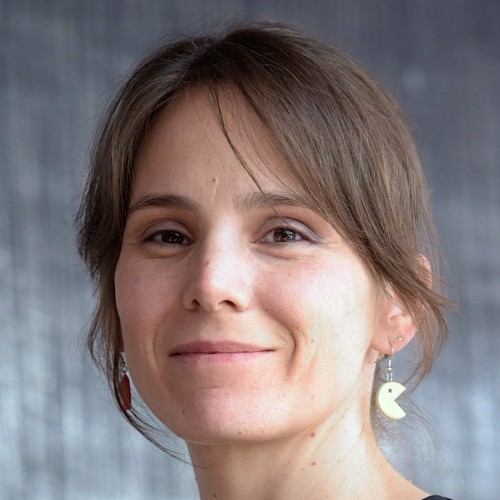 Special Day "New Trends in AI/ML" Co-Chair
Special Day "New Trends in AI/ML" Co-Chair
Ana-Lucia Varbanescu, University of Twente, NL
a.l.varbanescu@utwente.nl
Special Day "Emerging Computing Paradigms"
-formerly "Unconventional Computing"-
Sustaining increasingly challenging compute workloads requires going beyond technology scaling with von Neumann architectures in traditional CMOS. Examples include NP-hard optimisation, massive sensor processing in IoT, as well as deep learning and artificial intelligence where training compute requirements grow by ~750x every two years. Therefore, rethinking computing toward more sustainable and efficient solutions is urgently needed. This can take place by bringing computation closer to its physical substrate, or by seeking new computing paradigms across all layers of the compute stack, thereby spanning architecture, circuit, and device solutions.
The Special Day on Emerging Computing Paradigms covers key emerging topics in the areas of quantum computing, neuromorphic engineering, physics-based computing, probabilistic computing, reversible and adiabatic computing, and cellular automata. Starting with talks by key experts and closing with a panel discussion, this Special Day aims to outline tradeoffs and synergies in the wide landscape of unconventional computing approaches.
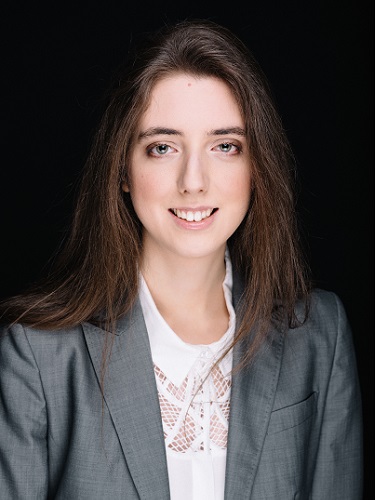 Special Day "Emerging Computing Paradigms" Co-Chair
Special Day "Emerging Computing Paradigms" Co-Chair
Charlotte Frenkel, TU Delft, NL
c.frenkel@tudelft.nl
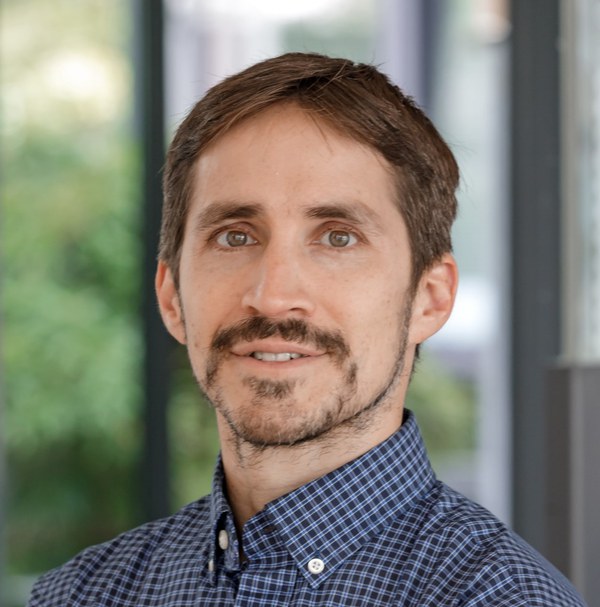 Special Day "Emerging Computing Paradigms" Co-Chair
Special Day "Emerging Computing Paradigms" Co-Chair
John Paul Strachan, FZ Juelich, DE
j.strachan@fz-juelich.de
Special Initiative “Autonomous Systems Design”
Fueled by the progress of Artificial Intelligence, autonomous systems are increasingly becoming integral parts of many Internet-of-Things (IoT) and Cyber Physical Systems (CPS) applications, such as automated driving, robotics, avionics, industrial automation and smart systems in general. Autonomous systems are self-governed and self-adaptive systems that are designed to operate in an open and evolving environment, which is not completely defined at design time. This poses a unique challenge to the design and verification of dependable autonomous systems. The DATE Special Initiative on Autonomous Systems Design will include peer-reviewed papers, special sessions and interactive sessions addressing these challenges.
- Abstract Submission: Saturday, 09 November 2024 AoE
- Full Paper Submission: Saturday, 16 November 2024 AoE
- Acceptance Notification: Tuesday, 17 December 2024 AoE
Submission site: https://softconf.com/date25/special_ASD/
More details and a specific call for contributions can be found online: www.date-conference.com/asd.
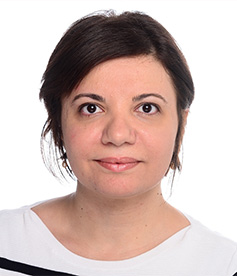 Special Initiative "Autonomous Systems Design" Co-Chair
Special Initiative "Autonomous Systems Design" Co-Chair
Selma Saidi, Technische Universität Braunschweig, DE
saidi@ida.ing.tu-bs.de
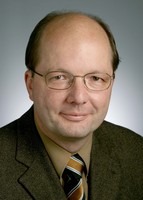 Special Initiative "Autonomous Systems Design" Co-Chair
Special Initiative "Autonomous Systems Design" Co-Chair
Rolf Ernst, Technische Universität Braunschweig, DE
ernst@ida.ing.tu-bs.de
Unplugged Sessions on Unconventional Computing
Come join us for stimulating brainstorm discussions in small groups about the future of digital engineering. Our focus this year will be on Unconventional Computing. Unconventional computing is computing by any of a wide range of new or unusual methods. Examples are analogue mechanical, analogue electrical, biological, membrane, optical, fluidics, micromechanical, etc. computing. In this session we will on the one hand look into different examples of unconventional computing and will subsequently explore the commonalities and foundations of these approaches. Abstraction and analogy seem to always be at the heart of unconventional computing approaches. Furthermore, the value (performance, cost, energy consumption) of these approaches seems to lie in their restriction to a particular class of problems. (Electrical) analogue computing for example excels at solving differential equations. We will try to chart the boundaries of operation where value is created.
We consider quantum computing to be outside the scope of the unplugged session.
If you want to get involved in the discussions, please contact the chairs accordingly.
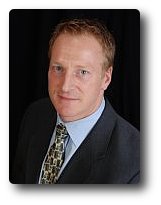 Unplugged Sessions Chair
Unplugged Sessions Chair
Pieter Mosterman, Raven Industries, US
unplugged-sessions@date-conference.com
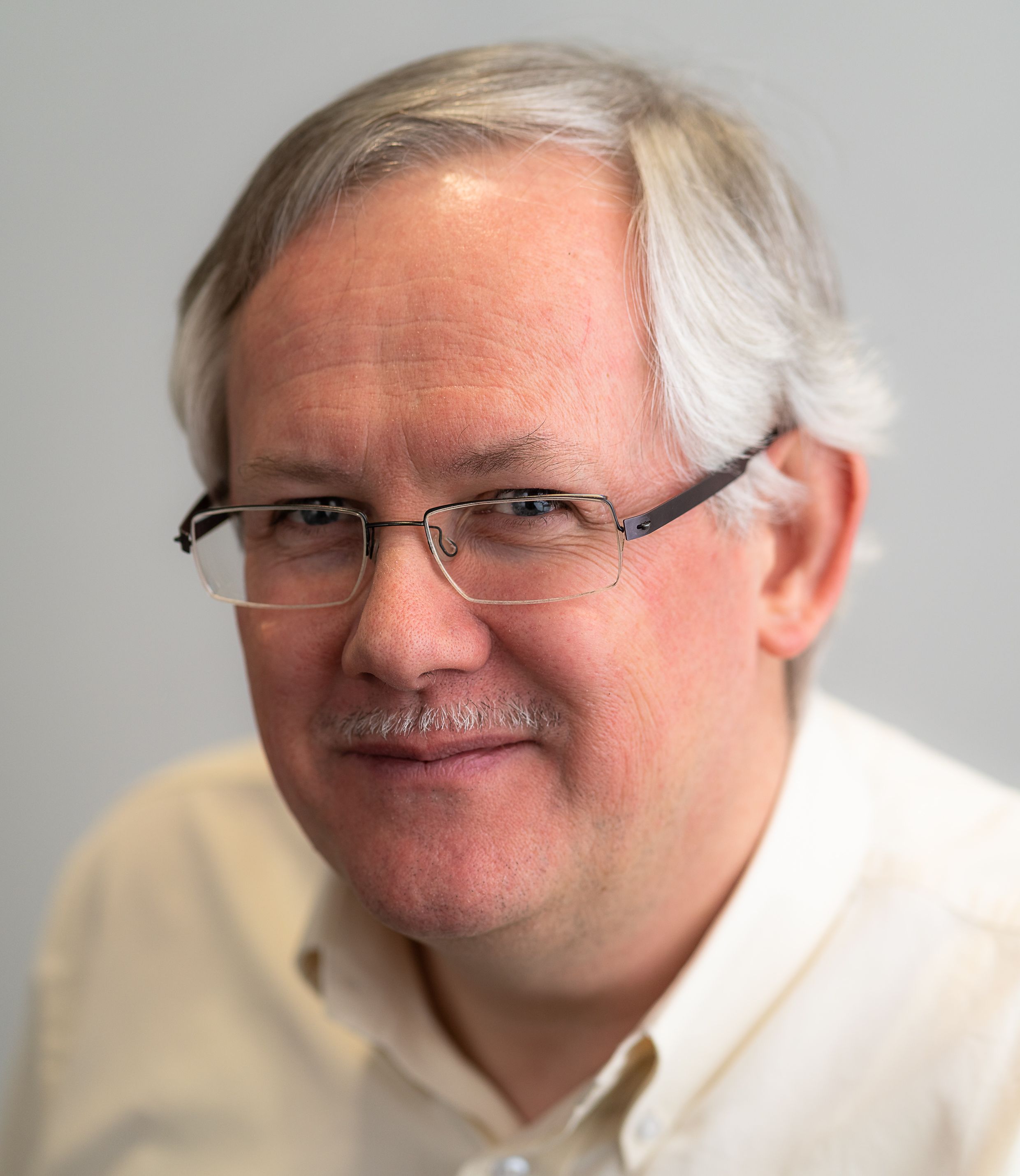 Unplugged Sessions Co-Chair
Unplugged Sessions Co-Chair
Hans Vangheluwe, University of Antwerp, BE
unplugged-sessions@date-conference.com
Topic Areas for Submission
Within the scope of the conference, the main areas of interest are organised in the following tracks. Submissions can be made to any of the track topics.
Track D: Design Methods and Tools, addresses design automation, design tools and hardware architectures for electronic and embedded systems. The emphasis is on methods, algorithms, and tools related to the use of computers in designing complete systems. The track focus includes significant improvements on existing design methods and tools as well as forward-looking approaches to model and design future system architectures, design flows, and environments.
This track is organised in the following topics:
- D1 System-level design methodologies and high-level synthesis, Click here for details
- D2 System simulation and validation, Click here for details
- D3 Formal methods and verification, Click here for details
- DT4 Design and test for analog and mixed-signal circuits and systems, and MEMS, Click here for details
- DT5 Design and test of hardware security primitives, Click here for details
- DT6 Design and test of secure systems, Click here for details
- D7 Network on chip and on-chip communication, Click here for details
- D8 Architectural and microarchitectural design, Click here for details
- D9 Low-power, energy-efficient and thermal-aware design, Click here for details
- D10 Approximate computing, Click here for details
- D11 Reconfigurable systems, Click here for details
- D12 Logical analysis and design, Click here for details
- D13 Physical analysis and design, Click here for details
- D14 Emerging design technologies for future computing, Click here for details
- D15 Emerging design technologies for future memories, Click here for details
- D16 Design Automation for Quantum Computing, Click here for details
Track A: Application Design, is devoted to the presentation and discussion of design experiences with a high degree of industrial relevance, real-world implementations, and applications of specific design and test methodologies. Contributions should illustrate innovative or record-breaking design and test methodologies, which will provide viable solutions in tomorrow’s silicon, embedded systems, and large-scale systems.
This track is organised in the following topics:
- A1 Power-efficiency and Smart Energy Systems for Sustainable Computing, Click here for details
- A2 Smart Society and Digital Wellness, Click here for details
- A3 Secure Systems, Circuits and Architectures, Click here for details
- A4 Autonomous Systems and Smart Industry, Click here for details
- A5 Applications of Emerging Technologies, Click here for details
- A6 Applications of Artificial Intelligence Systems, Click here for details
Track T: Test and Dependability, covers all test, design-for-test, reliability, and design-for-robustness issues, at system-, chip-, circuit-, and device-level for both analogue and digital electronics. Topics of interest also include diagnosis, failure mode analysis, debug and post-silicon validation challenges, and test or fault injection methods addressing system security.
This track is organised in the following topics:
- T1 Modeling and mitigation of defects, faults, variability, and reliability, Click here for details
- T2 Test generation, test architectures, design for test, and diagnosis, Click here for details
- T3 Dependability and system-level test, Click here for details
- DT4 Design and test for analog and mixed-signal circuits and systems, and MEMS, Click here for details
- DT5 Design and test of hardware security primitives, Click here for details
- DT6 Design and test of secure systems, Click here for details
Track E: Embedded Systems Design, is devoted to the modelling, analysis, design, verification and deployment of embedded software or embedded/cyber-physical systems. Areas of interest include methods, tools, methodologies and development environments for real-time systems, cyber-physical systems, networked systems, and dependable systems. Emphasis is, also, on model-based design and verification, embedded software platforms, software compilation and integration for these systems.
This track is organised in the following topics:
- E1 Embedded software architecture, compilers and tool chains, Click here for details
- E2 Real-time, dependable and privacy-enhanced systems, Click here for details
- E3 Machine learning solutions for embedded and cyber-physical systems, Click here for details
- E4 Design methodologies for machine learning architectures, Click here for details
- E5 Design, specification, modeling and verification for embedded and cyber-physical systems, Click here for details
Submission site: https://softconf.com/date25/conference/
Submitted by Regan Williams
on
Design, Automation and Test in Europe Conference | The European Event for Electronic System Design & Test
31 March - 2 April 2025 | Lyon, France
https://www.date-conference.com/
The Conference
The conference addresses all aspects of research into technologies for electronic and (embedded) systems engineering. It covers the design process, test and tools for design automation of electronic products ranging from integrated circuits to distributed large-scale systems. This includes both hardware and embedded software design issues. The conference scope also includes the elaboration of design requirements and new architectures for challenging application fields such as sustainable computing, smart societies and digital wellness, secure systems, autonomous systems and smart industry, and state of the art applications of artificial intelligence. Engineers, scientists and researchers involved in innovative industrial designs are particularly encouraged to submit papers to foster feedback from design to research.
Special Days on Emerging Topics
The scientific research track is complemented by a set of sessions focussing on emerging topics bringing new challenges to the community, with presentations and interactions on interesting and timely issues.
Special Day "New Trends in AI/ML"
This Special Day will focus in exploring the latest trends and innovations in Artificial Intelligence (AI) and Machine Learning (ML). AI (and mainly generative AI) is booming since the release of chat-GPT and it will change the future of Design, Automation and Test. This Special Day will highlight the following topics:
- Design of hardware architectures, including automatic exploration of large design spaces, assistance of the human designer, resource selection and optimisation
- Verification of hardware architectures, with topics such as performance prediction, (formal) design validation, accelerating simulations thanks to AI-Augmented Surrogate Models
- AI-Accelerated Physical Design and Validation of layout and floorplans
- Sustainability in AI/ML Development.
During the talks, AI/ML techniques such as Neural architecture search (NAS), Generative adversarial networks (GAN), Reinforcement learning, hybridisation of classical and AI techniques, federation of Small Language Models (or agents) will be discussed.
These topics will be presented by a lineup of distinguished speakers who are expert in their respective fields. The day will conclude with a panel discussion allowing exchanges with the audience and trigger discussions on the interaction between the various domains presented during the day.
This event is ideal for AI/ML researchers, data scientists, hardware designers, software developers, sustainability advocates, and anyone interested in the future directions of AI and ML for Design, Automation and Test.
 Special Day "New Trends in AI/ML" Co-Chair
Special Day "New Trends in AI/ML" Co-ChairAna-Lucia Varbanescu, University of Twente, NL
a.l.varbanescu@utwente.nl
Special Day "Emerging Computing Paradigms"
-formerly "Unconventional Computing"-
Sustaining increasingly challenging compute workloads requires going beyond technology scaling with von Neumann architectures in traditional CMOS. Examples include NP-hard optimisation, massive sensor processing in IoT, as well as deep learning and artificial intelligence where training compute requirements grow by ~750x every two years. Therefore, rethinking computing toward more sustainable and efficient solutions is urgently needed. This can take place by bringing computation closer to its physical substrate, or by seeking new computing paradigms across all layers of the compute stack, thereby spanning architecture, circuit, and device solutions.
The Special Day on Emerging Computing Paradigms covers key emerging topics in the areas of quantum computing, neuromorphic engineering, physics-based computing, probabilistic computing, reversible and adiabatic computing, and cellular automata. Starting with talks by key experts and closing with a panel discussion, this Special Day aims to outline tradeoffs and synergies in the wide landscape of unconventional computing approaches.
 Special Day "Emerging Computing Paradigms" Co-Chair
Special Day "Emerging Computing Paradigms" Co-ChairCharlotte Frenkel, TU Delft, NL
c.frenkel@tudelft.nl
 Special Day "Emerging Computing Paradigms" Co-Chair
Special Day "Emerging Computing Paradigms" Co-ChairJohn Paul Strachan, FZ Juelich, DE
j.strachan@fz-juelich.de
Special Initiative “Autonomous Systems Design”
Fueled by the progress of Artificial Intelligence, autonomous systems are increasingly becoming integral parts of many Internet-of-Things (IoT) and Cyber Physical Systems (CPS) applications, such as automated driving, robotics, avionics, industrial automation and smart systems in general. Autonomous systems are self-governed and self-adaptive systems that are designed to operate in an open and evolving environment, which is not completely defined at design time. This poses a unique challenge to the design and verification of dependable autonomous systems. The DATE Special Initiative on Autonomous Systems Design will include peer-reviewed papers, special sessions and interactive sessions addressing these challenges.
- Abstract Submission: Saturday, 09 November 2024 AoE
- Full Paper Submission: Saturday, 16 November 2024 AoE
- Acceptance Notification: Tuesday, 17 December 2024 AoE
Submission site: https://softconf.com/date25/special_ASD/
More details and a specific call for contributions can be found online: www.date-conference.com/asd.
 Special Initiative "Autonomous Systems Design" Co-Chair
Special Initiative "Autonomous Systems Design" Co-ChairSelma Saidi, Technische Universität Braunschweig, DE
saidi@ida.ing.tu-bs.de
 Special Initiative "Autonomous Systems Design" Co-Chair
Special Initiative "Autonomous Systems Design" Co-ChairRolf Ernst, Technische Universität Braunschweig, DE
ernst@ida.ing.tu-bs.de
Unplugged Sessions on Unconventional Computing
Come join us for stimulating brainstorm discussions in small groups about the future of digital engineering. Our focus this year will be on Unconventional Computing. Unconventional computing is computing by any of a wide range of new or unusual methods. Examples are analogue mechanical, analogue electrical, biological, membrane, optical, fluidics, micromechanical, etc. computing. In this session we will on the one hand look into different examples of unconventional computing and will subsequently explore the commonalities and foundations of these approaches. Abstraction and analogy seem to always be at the heart of unconventional computing approaches. Furthermore, the value (performance, cost, energy consumption) of these approaches seems to lie in their restriction to a particular class of problems. (Electrical) analogue computing for example excels at solving differential equations. We will try to chart the boundaries of operation where value is created.
We consider quantum computing to be outside the scope of the unplugged session.
If you want to get involved in the discussions, please contact the chairs accordingly.
 Unplugged Sessions Chair
Unplugged Sessions ChairPieter Mosterman, Raven Industries, US
unplugged-sessions@date-conference.com
 Unplugged Sessions Co-Chair
Unplugged Sessions Co-ChairHans Vangheluwe, University of Antwerp, BE
unplugged-sessions@date-conference.com
Topic Areas for Submission
Within the scope of the conference, the main areas of interest are organised in the following tracks. Submissions can be made to any of the track topics.
Track D: Design Methods and Tools, addresses design automation, design tools and hardware architectures for electronic and embedded systems. The emphasis is on methods, algorithms, and tools related to the use of computers in designing complete systems. The track focus includes significant improvements on existing design methods and tools as well as forward-looking approaches to model and design future system architectures, design flows, and environments.
This track is organised in the following topics:
- D1 System-level design methodologies and high-level synthesis, Click here for details
- D2 System simulation and validation, Click here for details
- D3 Formal methods and verification, Click here for details
- DT4 Design and test for analog and mixed-signal circuits and systems, and MEMS, Click here for details
- DT5 Design and test of hardware security primitives, Click here for details
- DT6 Design and test of secure systems, Click here for details
- D7 Network on chip and on-chip communication, Click here for details
- D8 Architectural and microarchitectural design, Click here for details
- D9 Low-power, energy-efficient and thermal-aware design, Click here for details
- D10 Approximate computing, Click here for details
- D11 Reconfigurable systems, Click here for details
- D12 Logical analysis and design, Click here for details
- D13 Physical analysis and design, Click here for details
- D14 Emerging design technologies for future computing, Click here for details
- D15 Emerging design technologies for future memories, Click here for details
- D16 Design Automation for Quantum Computing, Click here for details
Track A: Application Design, is devoted to the presentation and discussion of design experiences with a high degree of industrial relevance, real-world implementations, and applications of specific design and test methodologies. Contributions should illustrate innovative or record-breaking design and test methodologies, which will provide viable solutions in tomorrow’s silicon, embedded systems, and large-scale systems.
This track is organised in the following topics:
- A1 Power-efficiency and Smart Energy Systems for Sustainable Computing, Click here for details
- A2 Smart Society and Digital Wellness, Click here for details
- A3 Secure Systems, Circuits and Architectures, Click here for details
- A4 Autonomous Systems and Smart Industry, Click here for details
- A5 Applications of Emerging Technologies, Click here for details
- A6 Applications of Artificial Intelligence Systems, Click here for details
Track T: Test and Dependability, covers all test, design-for-test, reliability, and design-for-robustness issues, at system-, chip-, circuit-, and device-level for both analogue and digital electronics. Topics of interest also include diagnosis, failure mode analysis, debug and post-silicon validation challenges, and test or fault injection methods addressing system security.
This track is organised in the following topics:
- T1 Modeling and mitigation of defects, faults, variability, and reliability, Click here for details
- T2 Test generation, test architectures, design for test, and diagnosis, Click here for details
- T3 Dependability and system-level test, Click here for details
- DT4 Design and test for analog and mixed-signal circuits and systems, and MEMS, Click here for details
- DT5 Design and test of hardware security primitives, Click here for details
- DT6 Design and test of secure systems, Click here for details
Track E: Embedded Systems Design, is devoted to the modelling, analysis, design, verification and deployment of embedded software or embedded/cyber-physical systems. Areas of interest include methods, tools, methodologies and development environments for real-time systems, cyber-physical systems, networked systems, and dependable systems. Emphasis is, also, on model-based design and verification, embedded software platforms, software compilation and integration for these systems.
This track is organised in the following topics:
- E1 Embedded software architecture, compilers and tool chains, Click here for details
- E2 Real-time, dependable and privacy-enhanced systems, Click here for details
- E3 Machine learning solutions for embedded and cyber-physical systems, Click here for details
- E4 Design methodologies for machine learning architectures, Click here for details
- E5 Design, specification, modeling and verification for embedded and cyber-physical systems, Click here for details
Submission site: https://softconf.com/date25/conference/
 Special Day "New Trends in AI/ML" Co-Chair
Special Day "New Trends in AI/ML" Co-Chair